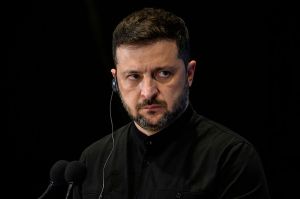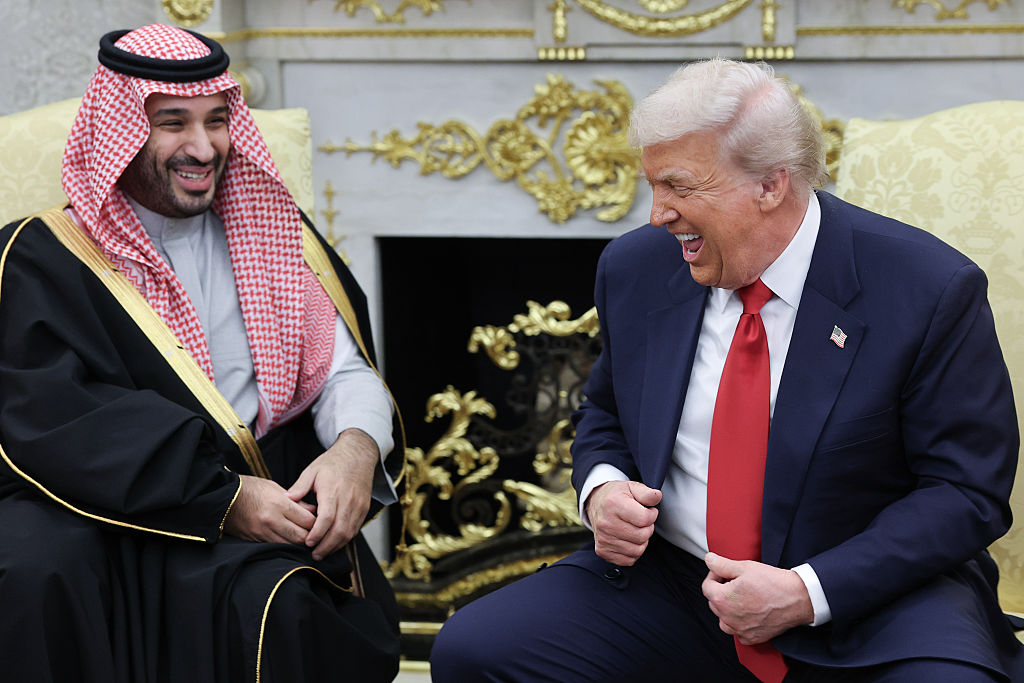There is much that is uncertain about Tuesday’s elections, but it seems all but certain that the GOP will take the House. They may well do the same in the Senate. What the new majority will stand for, however, is far from clear, particularly on foreign policy — and it is foreign policy that will likely prove to be the most impactful area of the 118th Congress. With Biden in the White House, there is not much on the policy front that a GOP legislature can do beyond budgeting, but as the war in Ukraine drags on, the power to set budgets will be crucial.
When the Congress is sworn in on January 3, Ukraine will be in the dead of winter, and — if Russia’s strategy remains the same — home to millions without access to heat and water. Kyiv will be both preparing for its own spring offensive and bracing for Moscow’s next big push, manned by thousands of newly mobilized troops. Providing Ukraine with the weapons and funds they need will be as critical in the spring as it has been for the past eight months.
Much of the Republican caucus is still firmly behind Ukraine. Senate Minority Leader Mitch McConnell has been a staunch supporter of Kyiv’s war effort, and this will continue. Senator Jim Risch (R-ID), who will likely chair the Foreign Relations Committee, has also proven to be deeply committed to seeing Ukraine through until the end.
On the House side, Representative Dan Crenshaw of Texas, a rising star in the GOP, has been a vocal proponent of providing Ukraine the help it needs. Similarly, Representative Michael Turner of Ohio, ranking member of the Permanent Select Committee on Intelligence, who recently visited Ukraine, is fully behind America’s efforts to supply aid. Even in the cases where some members have called for not writing Ukraine a “blank check,” this often means that they want more oversight over the money, not that they want to end the supply.
But an increasingly strong wing of the party is overtly skeptical of aiding Ukraine. Some prominent Senate candidates have argued for addressing issues at home before looking abroad. The GOP’s Senate hopeful from Alabama, Katie Britt, has indicated as much. J.D. Vance, who is on track to win in Ohio, has been a leading critic of US support for Kyiv, saying, “I don’t really care what happens in Ukraine one way or another.”
The Republican candidate in the close Nevada’s Senate race, Adam Laxalt, bashed the $40 billion aid package earlier this year: “Tax dollars towards another foreign war while families here at home are struggling,” he said. The Republican running for New Hampshire’s Senate seat, Don Bolduc, was more forthright, saying, “I do not think that we should be sending them any more weapons and ammunition.” It’s a similar story in the House, where criticism ranges from calls for more oversight to outright opposition to further support.
Skepticism of Ukraine aid is also growing amongst Republican voters, as a recent Wall Street Journal poll has indicated. In March, only about 6 percent of Republicans said the US was doing too much to help Ukraine, but by October the figure hit 48 percent. Some 35 percent of GOP members think that the US should send more economic support. If these trends continue, they could imperil future aid. Complicating things is the fact that the portion of the party that remains staunchly behind Ukraine is still large and powerful, so it is hard to prejudge what will happen come January.
The responsibility that will be laid on the incoming Congress will be immense: Ukraine cannot win its war if the United States does not support it. The cracks are also showing in progressive support for Ukraine, further raising the stakes in the Republican debate over aid. War fatigue may be unsurprising, but the costs of a Ukrainian defeat would be long-term and devastating, and would give the go-ahead to those who wish to threaten Americans’ way of life.

























